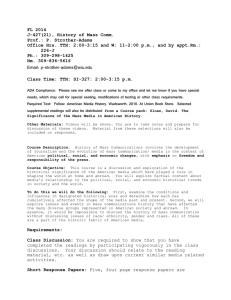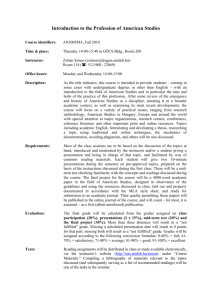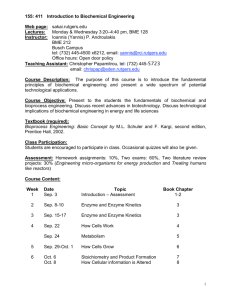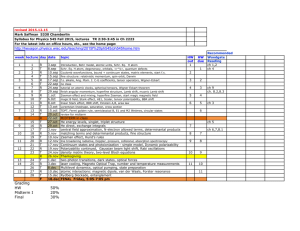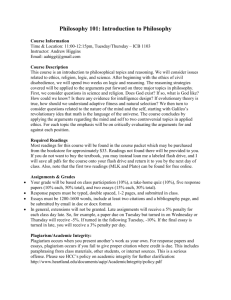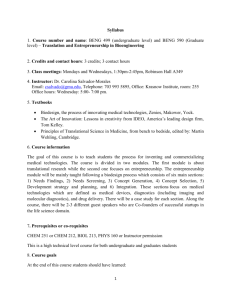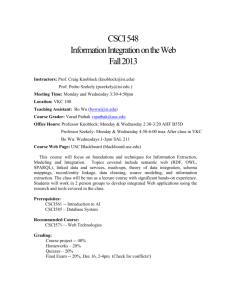here - Southeastern Louisiana University
advertisement
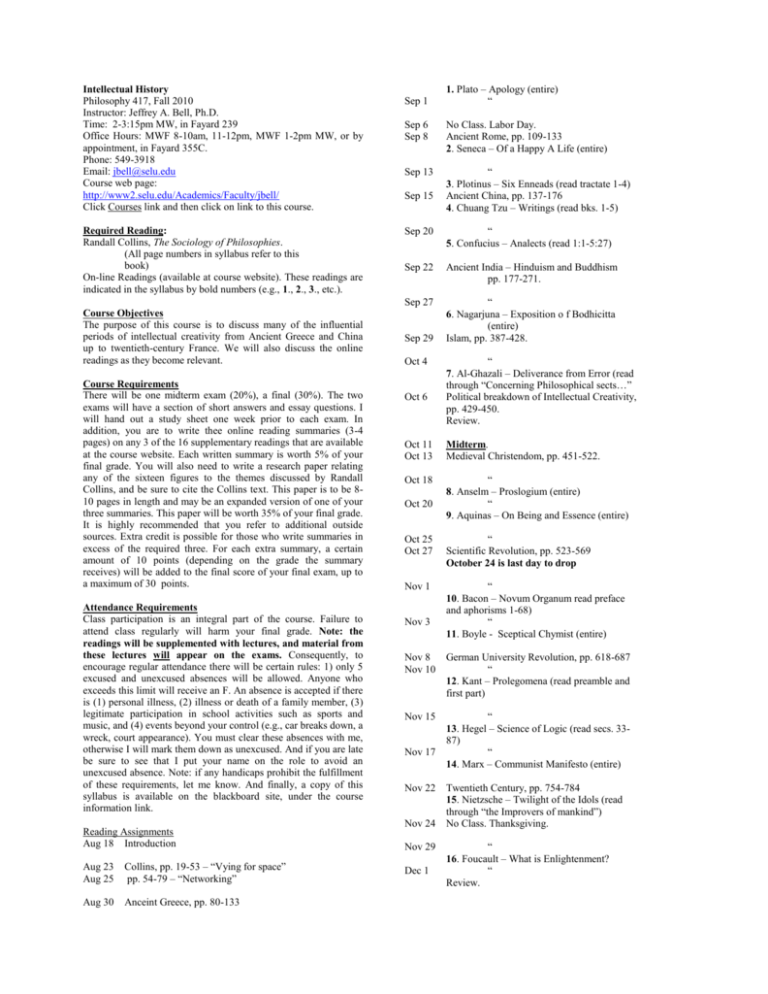
Intellectual History Philosophy 417, Fall 2010 Instructor: Jeffrey A. Bell, Ph.D. Time: 2-3:15pm MW, in Fayard 239 Office Hours: MWF 8-10am, 11-12pm, MWF 1-2pm MW, or by appointment, in Fayard 355C. Phone: 549-3918 Email: jbell@selu.edu Course web page: http://www2.selu.edu/Academics/Faculty/jbell/ Click Courses link and then click on link to this course. Required Reading: Randall Collins, The Sociology of Philosophies. (All page numbers in syllabus refer to this book) On-line Readings (available at course website). These readings are indicated in the syllabus by bold numbers (e.g., 1., 2., 3., etc.). Course Objectives The purpose of this course is to discuss many of the influential periods of intellectual creativity from Ancient Greece and China up to twentieth-century France. We will also discuss the online readings as they become relevant. Course Requirements There will be one midterm exam (20%), a final (30%). The two exams will have a section of short answers and essay questions. I will hand out a study sheet one week prior to each exam. In addition, you are to write thee online reading summaries (3-4 pages) on any 3 of the 16 supplementary readings that are available at the course website. Each written summary is worth 5% of your final grade. You will also need to write a research paper relating any of the sixteen figures to the themes discussed by Randall Collins, and be sure to cite the Collins text. This paper is to be 810 pages in length and may be an expanded version of one of your three summaries. This paper will be worth 35% of your final grade. It is highly recommended that you refer to additional outside sources. Extra credit is possible for those who write summaries in excess of the required three. For each extra summary, a certain amount of 10 points (depending on the grade the summary receives) will be added to the final score of your final exam, up to a maximum of 30 points. Attendance Requirements Class participation is an integral part of the course. Failure to attend class regularly will harm your final grade. Note: the readings will be supplemented with lectures, and material from these lectures will appear on the exams. Consequently, to encourage regular attendance there will be certain rules: 1) only 5 excused and unexcused absences will be allowed. Anyone who exceeds this limit will receive an F. An absence is accepted if there is (1) personal illness, (2) illness or death of a family member, (3) legitimate participation in school activities such as sports and music, and (4) events beyond your control (e.g., car breaks down, a wreck, court appearance). You must clear these absences with me, otherwise I will mark them down as unexcused. And if you are late be sure to see that I put your name on the role to avoid an unexcused absence. Note: if any handicaps prohibit the fulfillment of these requirements, let me know. And finally, a copy of this syllabus is available on the blackboard site, under the course information link. Reading Assignments Aug 18 Introduction Aug 23 Aug 25 Collins, pp. 19-53 – “Vying for space” pp. 54-79 – “Networking” Aug 30 Anceint Greece, pp. 80-133 Sep 1 1. Plato – Apology (entire) “ Sep 6 Sep 8 No Class. Labor Day. Ancient Rome, pp. 109-133 2. Seneca – Of a Happy A Life (entire) Sep 13 “ 3. Plotinus – Six Enneads (read tractate 1-4) Ancient China, pp. 137-176 4. Chuang Tzu – Writings (read bks. 1-5) Sep 15 Sep 20 “ 5. Confucius – Analects (read 1:1-5:27) Sep 22 Ancient India – Hinduism and Buddhism pp. 177-271. Sep 27 “ 6. Nagarjuna – Exposition o f Bodhicitta (entire) Islam, pp. 387-428. Sep 29 Oct 4 Oct 6 “ 7. Al-Ghazali – Deliverance from Error (read through “Concerning Philosophical sects…” Political breakdown of Intellectual Creativity, pp. 429-450. Review. Oct 11 Oct 13 Midterm. Medieval Christendom, pp. 451-522. Oct 18 “ 8. Anselm – Proslogium (entire) “ 9. Aquinas – On Being and Essence (entire) Oct 20 Oct 25 Oct 27 “ Scientific Revolution, pp. 523-569 October 24 is last day to drop Nov 1 “ 10. Bacon – Novum Organum read preface and aphorisms 1-68) “ 11. Boyle - Sceptical Chymist (entire) Nov 3 Nov 8 Nov 10 German University Revolution, pp. 618-687 “ 12. Kant – Prolegomena (read preamble and first part) Nov 15 “ 13. Hegel – Science of Logic (read secs. 3387) “ 14. Marx – Communist Manifesto (entire) Nov 17 Nov 22 Nov 24 Nov 29 Dec 1 Twentieth Century, pp. 754-784 15. Nietzsche – Twilight of the Idols (read through “the Improvers of mankind”) No Class. Thanksgiving. “ 16. Foucault – What is Enlightenment? “ Review. Dec 8 (Wednesday) Final Exam: 8-10am.


